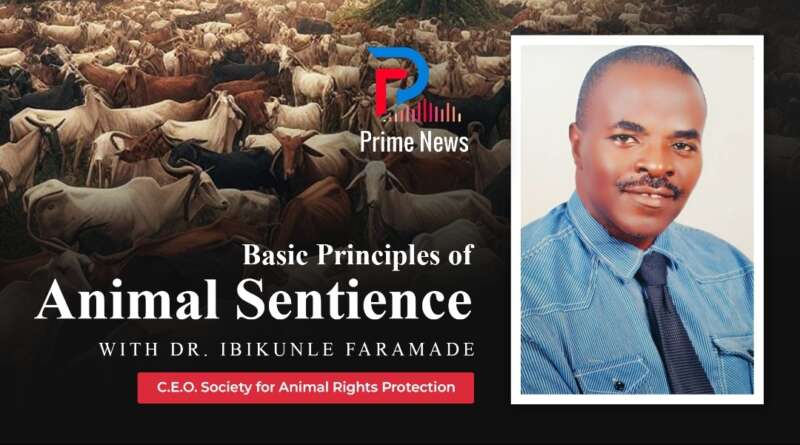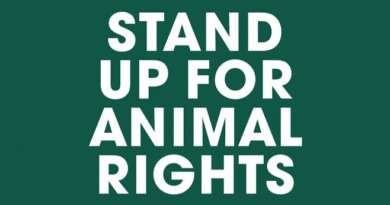Legal Framework For Animal Welfare Policy Implementation In Nigeria: Matters Arising (3)
By Dr Ibikunle Faramade
…Continued from last publication
Section 22 sub – section 4
Nothing in this section shall apply to
- Dehorning of cattle , castration , branding, nose roping of any animal in the prescribed manner
- Destruction of stray dogs in lethal chamber or by any other methods as it may be prescribed
- Extermination or destruction of any animals under the authority of any law
- Commission or omission of any act in the course of the destruction or preparation for destruction as food for mankind unless such destruction or preparation was accompanied with the infliction of unnecessary pain and suffering
Sub -section 5: When the owner of an animal is convicted of an offense under sub section 3, it shall be lawful for the court, if satisfied that it would be cruel to keep the animal alive, to direct that the animal be destroyed or to assign the animal to veterinary authority for that purpose, and the person to whom such animal is so assigned, shall immediately, destroy such animals or cause such animals to be destroyed in his presence without unnecessary suffering, and any reasonable expense incurred in destroying the animal may be ordered by the court to be recovered from the owner as if it were a fine.
Sub- section 6: When any Magistrate, Commissioner of Police or Divisional Police Officer, Superintendent of Police or any other law enforcement agent has reason to believe that an offense under sub section 1 has been committed in respect of any animal, he may direct the immediate destruction of such animal, if in his opinion, it would be cruel to keep the animal alive, and order for the arrest of the offender for prosecution.
Sub section 7: A police officer or a law enforcement officer, above the rank of a constable or its equivalent, or any person authorized by the state government, in this behalf, who finds any animal so diseased, severely injured, or in such physical condition, that in his opinion, it cannot be removed without cruelty, may, if the owner is absent or refuses his consent to the destruction of the animal, immediately summon the veterinary officer in charge of the area in which such animal is found, and if the veterinary officer certifies that the animal is severely or mortally injured, in such a physical condition that it would be cruel to keep it alive, the police officer or the authorized person, may after obtaining the authorization of the veterinary surgeon, destroy the animal injured , or cause it to be destroyed in such a manner as may be prescribed
Section 23 covers a broad regulation of animal experimentation in Nigeria. While animal experimentation is considered necessary for advancement of knowledge, the law forbids callous and inhumane treatment of laboratory animals. This section also empowered the creation of Animal Welfare Council in Nigeria and stipulates its membership, derived from many sectors of human endeavors. The sole mandate of this Council is to prevent cruelty to experimental animals. They are also expected to enforce the rule of replacement (of animals with other options like stem cells in research), reduction (of number of animals to be engaged if animal use is unavoidable) and refinement (of experimental protocols to reduce intensity and duration of pain).
Sub-sections 6-11 forbids any Institution or Organization whose mandate relates to the use of animals from using animals for any type of experiment without the prior establishment of Animal Use and Care Committees (AUCC) or Animal Ethics Committees (AEC). Therefore, the establishment of AUCC or AEC is a prerequisite for approval to use animals for research. Anything outside this is outright illegality. It is hereby advised that such Institution should do the needful in order not to run afoul of the law. The outcome of researches involving animals would not be acceptable for public consumption via academic publication if ethical approval was not obtained or granted before the use of animals for such experiments.
Section 24 , sub sections 1-7 laid emphasis on responsible pet ownership in terms of adequate feeding, provision of shelter, treatment of diseases, prevention of roaming etc. a fine of 50,000 naira was imposed on first offender while 100,000 was imposed on subsequent offender including a possible imprisonment of two months!
It is very apposite to say that the aforementioned sections (from last week) and sub-sections of the Animal (Disease) Control Acts 2022 have enshrined laudable provisions to guarantee animal welfare and prevention of cruelty to animals in Nigeria as of today.
However, the weak link is in the area of implementation and enforcement by the Nigeria Police Force in partnership with the veterinary authorities at both Federal and State levels (especially at the State level).
It is our humble opinion of the Society for Animal Rights Protection that each State of the Federation, through the Department of Veterinary Services, should make effort to domesticate relevant sections and sub- section within their domains for easy enforcement.
In addition, they should go a step further by establishing a desk officer/ schedule officer whose sole responsibility would be inter alia, the handling of animal welfare issues. Having a dedicated desk office for this purpose would prevent the problem of who to report animal welfare complaints or contravention to.
It would bridge communication gap, improve service delivery, and reduce time of resolution of complaints. Also, the State Animal Welfare Desk Officer would the appropriate officer who would be in regular communication and networking with the schedule police officer for animal welfare under the auspices of the Force Animal Branch of the Nigeria Police Force throughout the country.
Furthermore, the establishment of Animal Welfare Committee in each state would be necessary, to work in sync with the Animal Welfare Council already existing under the Federal Department of Animal Health and Pest Control Services, Abuja, for effective coordination, communication and collaboration. In this direction, the government of Edo State has done well by inaugurating animal welfare committee recently. It is hoped that the committee would immediately commence their activities so that other state could be so inspired by their success stories.
In conclusion, the Federal Department of Veterinary and Pest Control Services, the various Departments of Veterinary Services across the states of the Federation, the Nigerian Veterinary Medical Association (National and State chapters) and the Veterinary Council of Nigeria should work in synergy to increase the visibility of these laws through aggressive public advocacy using traditional and new media for the benefit of the society. The law enforcement agents should also try to be conversant with the law so that arrest and prosecution would serve as deterrent to animal welfare abuse.
Dr. Ibikunle Faramade is a veterinary pathologist and a lecturer at the Federal College of Animal Health & Production Technology, Apata. Ibadan. He’s the C.E.O of the Society for Animal Rights Protection, a non-profit and a non-governmental organization dedicated to the promotion of animal welfare, animal rights and prevention of cruelty to animals.
animalrightsprotection2020@gmail.com , +2348028305284




A very good information. Please can I get the full copy of the law?